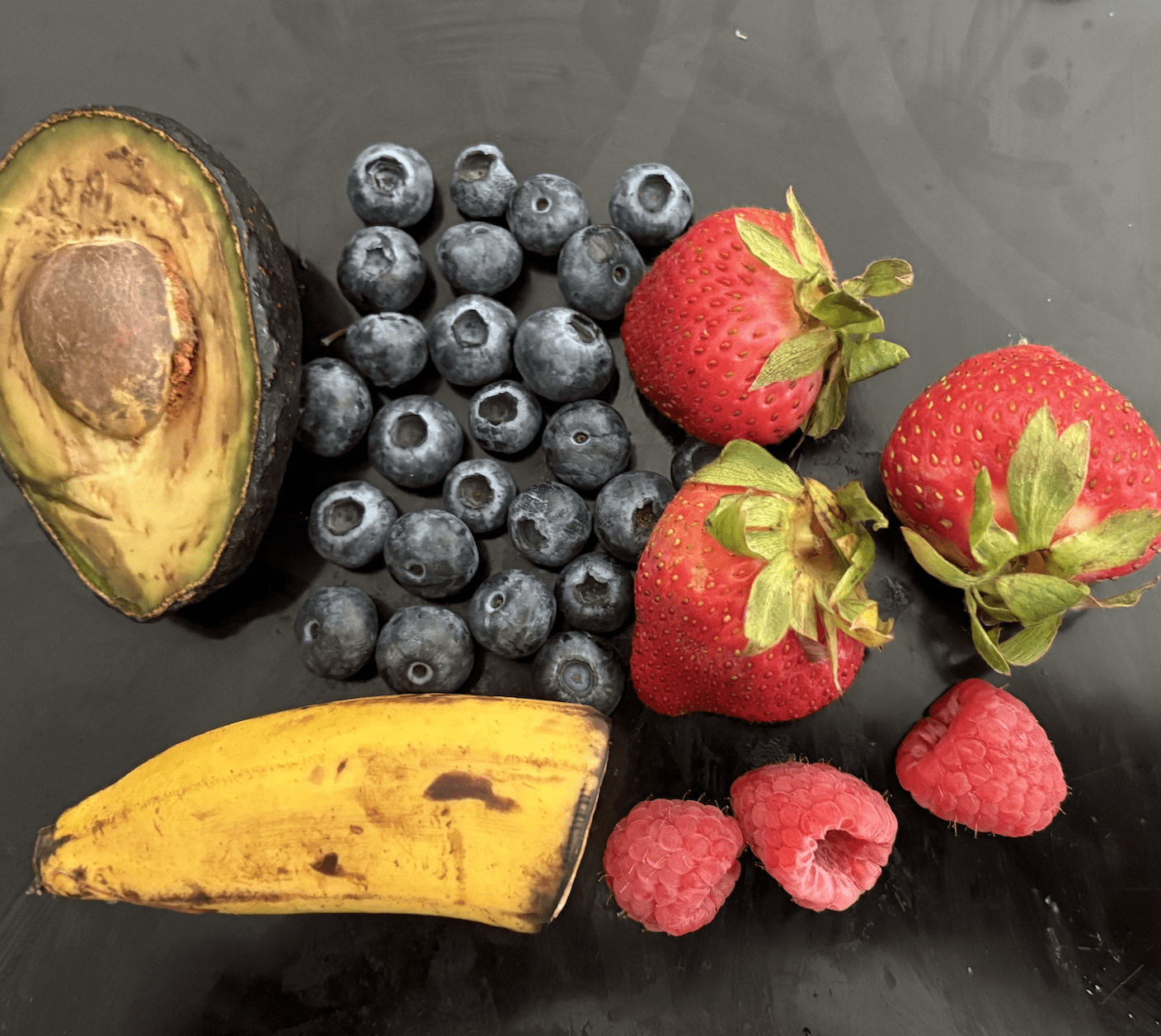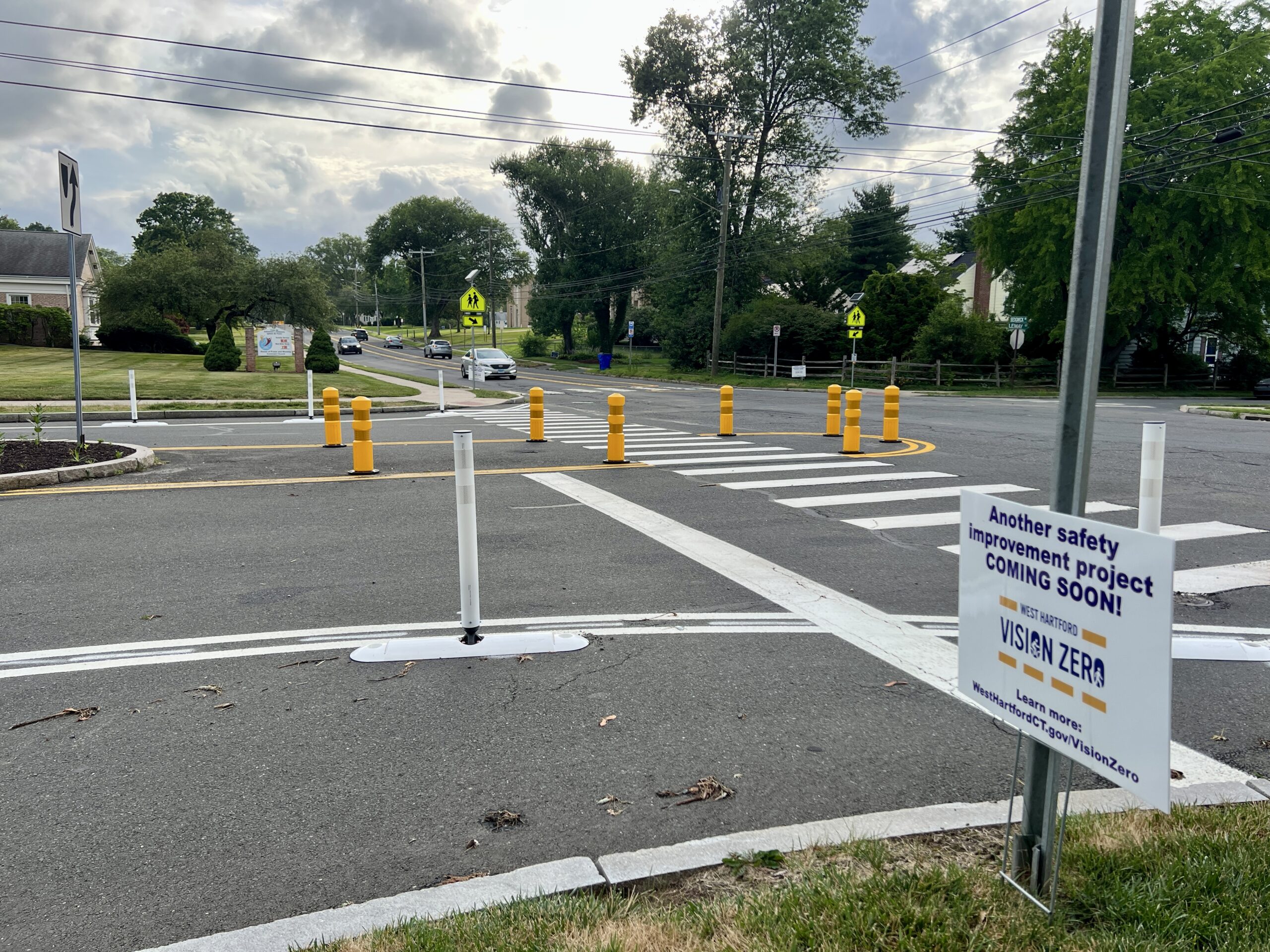Consumer Diary: Flip-Flops, Fruit

Audio By Carbonatix

Here are the four fruits and half-banana I eat every morning as a key part of the meal. Photo credit: Harlan Levy
Consumer columnist and West Hartford resident Harlan Levy has more than 20 years of experience writing stories about everyday experiences that anyone could encounter.

Harlan Levy. Courtesy photo
By Harlan Levy
Do any of you wear flip-flops? Our friend Rachel in New York City says she walks “miles and miles a day every day“ in her flip-flops. Maybe not a great idea.
Doctors say they can hurt circulation and leg health, according to a July 23 report, which says: Flip flops offer little support which can lead to leg and foot problems and signs of poor vein health include swelling, fatigue, and visible veins in the legs. Wearing them too often can put serious strain on your feet and legs, leading to issues that go far beyond sore arches.
“Your vein health is part of your overall wellness,” said Dr. Adria Ford of the Center for Vein Restoration. “Ignoring early signs of circulation problems can lead to more serious complications down the road.”
The biggest health risks:
- Poor circulation due to lack of calf muscle engagement
- Pooling of blood in the legs, which can lead to varicose veins or worsen existing ones
- Swelling, heaviness, and fatigue in the lower limbs
- Foot problems like plantar fasciitis, heel spurs, and toe injuries from altered walking patterns
- Increased risk of cuts, scrapes, or infections due to minimal foot protection

Our friend Rachel (left) says she walks “miles and miles every day in my flip-flops” in New York City. Her friend Disnayra says she wears her Birkenstocks every day as well. Rachel may have foot problems. Photo credit: Harlan Levy
“Flip flops don’t provide the structure needed to activate the calf muscles,” Ford said. “And those muscles play a vital role in pumping blood back up toward the heart.”
Signs:
- Leg swelling or ankle puffiness
- Visible varicose or spider veins
- A feeling of heaviness or fatigue in the legs
- Aching or throbbing sensations in the lower limbs
- Foot or leg pain after wearing flat footwear
- Skin discoloration, especially near the ankles
- Slow-healing sores or ulcers on the legs
Recommendations:
Opt for shoes that have arch and heel support, firm soles that encourage natural walking patterns, and secure straps to keep shoes in place without toe gripping.
If you have a personal history of vein disease, a family history of vein disease, pregnant women, elderly people, a history of leg injury or blood clots, overweight or obese people, or those who spend a lot of time standing or sitting, poor footwear may increase your risk of vein issues.
Also, avoid standing or sitting too long without movement, stay hydrated, elevate your legs after long days to reduce swelling, use compression socks if advised by your doctor, and check your legs regularly for signs of vein issues.
8 best fruits
I eat a handful of strawberries, raspberries, and blueberries, and also half of a banana every morning, and, according to report from Hartford HealthCare issued a few days ago, you should eat those fruits daily, too.
“Fruit is packed with vitamins, minerals, fiber and antioxidants, and it comes in its own convenient package,” said Dr. Ulysses Wu. “The key is eating a variety and choosing the right fruits for your health goals.”
Here’s the list of the best fruits:
- Berries: Berries are loaded with nutrients. “Blueberries, in particular, are one of the most antioxidant-rich fruits out there,” Wu said. “They’ve been shown to support heart health, brain function, and even reduce inflammation.” Other colorful berries like raspberries and blackberries also deserve a spot on your plate, Wu said. “These are packed with antioxidants and anthocyanins, which help reduce inflammation,”
- Avocado: “Avocados are actually one of the healthiest fruits you can eat,” Wu said. Not only are they high in potassium, they’re also full of heart-healthy monounsaturated fats, along with fiber and folate. That combo helps lower cholesterol, support brain health and keep you feeling full longer. They also contain lutein, an antioxidant.
- Pomegranate: “Pomegranate seeds are full of antioxidants that help fight inflammation and protect your heart,” Wu said. And they also might help lower blood pressure and cholesterol levels.
- Kiwi: “One kiwi can give you more vitamin C than an orange,” Wu said. “And it’s a good source of potassium and fiber.” Also, the skin is edible – and loaded with even more fiber.
- Papaya: “Papaya contains a digestive enzyme called papain, which can help break down protein and ease bloating,” Wu said. It’s also high in vitamin C, A, potassium, folate and water, a great choice for hydration and immune support.
- Guava: One small guava can pack more than double your daily vitamin C needs. “People don’t often think to grab guava at the grocery store, but it supports immune health, digestion and even your skin,” Wu said. Also, the skin and seeds are edible to add to a full nutrient package.
- Dragon fruit, the fruit with the hot pink skin and speckled interior: “Dragon fruit is high in fiber, vitamin C, and antioxidants,” Wu said. “It may even support gut health, thanks to prebiotic fiber.” It’s also low in calories and sugar, especially good for people watching their blood sugar.
- Apples: “Apples are a great source of fiber, including soluble fiber, and will help you feel full sooner,” Wu said, adding that the pectin is good for your gut health.
Now you know.
NOTE: If you have a consumer problem, contact me at [email protected] (“Consumer” in subject line), and, with the power of the press, maybe I can help.
Like what you see here? Click here to subscribe to We-Ha’s newsletter so you’ll always be in the know about what’s happening in West Hartford! Click the blue button below to become a supporter of We-Ha.com and our efforts to continue producing quality journalism.



